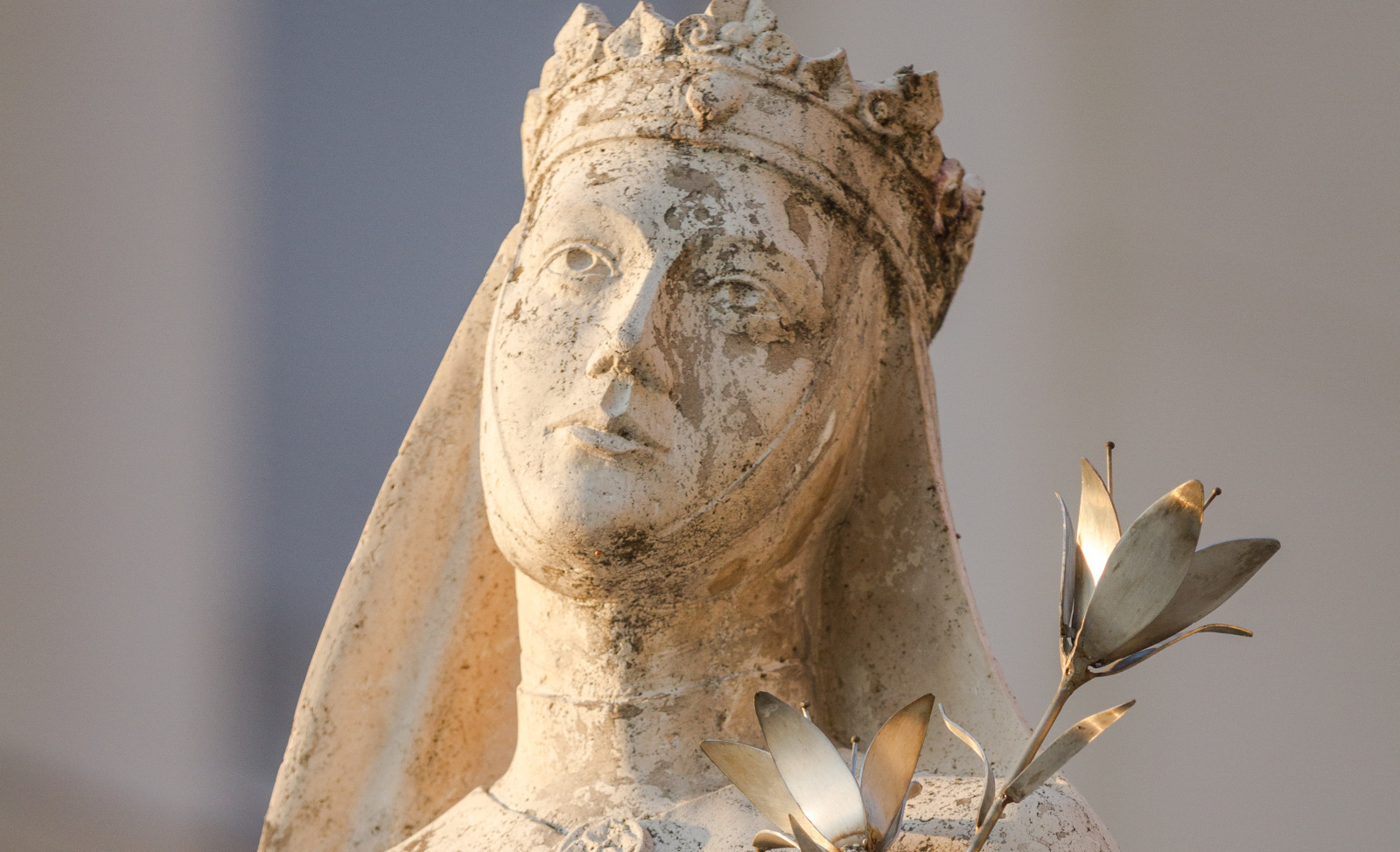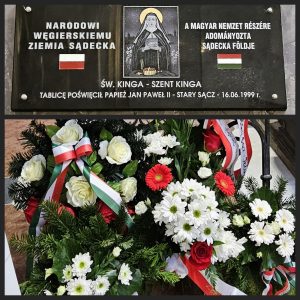
In the Austrian capital on Friday, a talk "with Hungarians about Hungary" took place.Continue reading

St. Kinga of Poland, born 800 years ago today, was a Hungarian princess and has been the patron saint of Poland and Lithuania since 1715.
Kinga, whose Hungarian name is a form of “Kunigunde,” belonged to the Árpád dynasty. She was born on March 5, 1224, in Esztergom (northwest Hungary) as the first-born child of King Béla IV of Hungary and Maria Laskarina, a Byzantine emperor’s daughter. Kinga was the sister of St. Margaret of Hungary and Blessed Jolenta of Gniezno, and the niece of St. Elizabeth of Thuringia.
From her early years, Kinga displayed a deep devotion to her faith, taking a vow of chastity and dedicating her life to serving God.
In 1239, at the age of fifteen, she was asked by the Polish prince Boleslaw to marry him. The young bride embarked on a splendid procession from her birthplace to Krakow, where she was married. Despite her royal status, Kinga remained committed to her vow of chastity, which her husband also respected by taking a vow himself.
Throughout her life, Kinga demonstrated remarkable generosity and compassion. She contributed her entire dowry to support efforts against the Tartars and helped in rebuilding the country after their invasion.
Kinga financed the construction of hospitals, churches, and monasteries, including the monastery of Stary Sącz, holding significant cultural importance.
In 1249, Kinga returned to Hungary to seek aid for the Polish people in need. In gratitude for her efforts, she was gifted the salt mine in Maramures (Máramaros, nowadays Romania), and she later initiated the operation of the famous salt mines of Wieliczka in 1251.

Salt statue of St. Kinga in the salt mines of Wieliczka. Photo: Wikipedia
Despite her royal status, Kinga actively engaged in government affairs and earned the admiration of the people for her charitable activities. She was honored by her husband, King Boleslaw V, who granted her land to establish a Poor Clares monastery in Stary Sącz, south of Krakow, in 1257.
After forty years of chaste marriage, Kinga mourned the loss of her husband in 1279.
She then sought admission to the Order of Poor Clares and dedicated the remainder of her life to God.
Despite requests from the Polish people for her to take over the government, Kinga remained steadfast in her devotion to religious life.
Until her passing on July 24, 1292, she served as the abbess of her monastery, where she was known for her support of families with many children. Beatified in 1690, and canonized in 1999 by Pope John Paul II, Kinga’s legacy continues to inspire as a symbol of faith, compassion, and selflessness.
As “the fighter for her clan” in her Old High German name, Kinga cherished her second homeland, Poland, and its people as her own.
Her commitment to serving others and her Christian values serve as a timeless example for all, particularly in today’s world.

Photo: Facebook / ELNÖ
Efforts to diminish the historical connections between Hungary and Poland, such as those initiated by the Donald Tusk government through interventions in school programs, are likely to fail. As long as the Christian and humanist testimony of individuals like Kinga of Poland, János Esterházy, Ilona Andrássy, and Wacław Felczak endures in the collective memory of the two fraternal nations, the bonds between them will remain strong and resilient.
Via Magyar Kurír, Ungarn Heute; Featured Image: Wikipedia